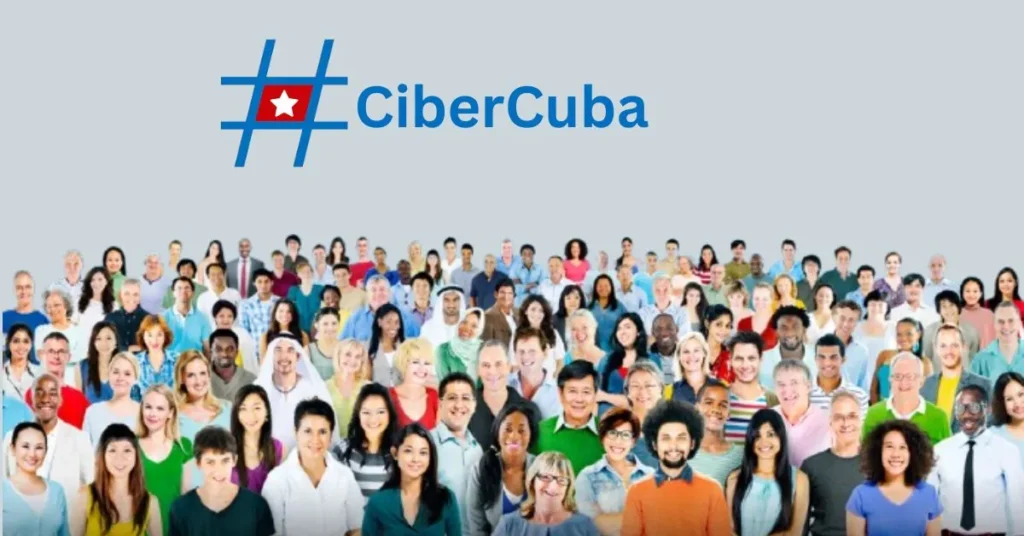Ciber Cuba is an independent online platform that focuses on delivering news, culture, and entertainment to Cubans across the globe. Since its inception, it has provided readers with up-to-date information about Cuba, covering both domestic and international stories that impact Cuban life. The site’s broad range of content makes it a vital source of information, particularly for those living in Cuba or those interested in Cuban affairs.
The Founding of CiberCuba
Cuban news portal was founded in 2014 by Cuban expatriates with a mission to give a voice to those living both on the island and abroad. Its founding members aimed to create an alternative to state-controlled media in Cuba, which has long been criticized for its limitations on free speech. By setting up operations outside Cuba, the founders were able to navigate around some of the restrictions that Cuban journalists face.
A Platform for the Cuban Diaspora
The platform quickly gained popularity among Cubans living in the diaspora, particularly in countries like Spain, the U.S., and Mexico. Many Cubans who left the island wanted a reliable source of news about their homeland, and Ciber Cuba filled that void. It wasn’t just about news; it became a way for expatriates to stay connected with their culture and community.
Content Offered by CiberCuba
Cuban news portal covers a wide array of topics, ensuring it caters to various interests. The site features:
News: Updates on the Cuban government, political reforms, and international relations.
Entertainment: Coverage of Cuban artists, musicians, and film.
Sports: Regular reports on both Cuban athletes and international sports news.
Opinion Pieces: Commentaries that allow contributors to express their views on Cuban society, both from within and outside the island.
Cultural Stories: Articles that highlight the rich heritage, traditions, and festivals of Cuba.
Access and Censorship Issues
Ciber Cuba is partially blocked in Cuba, meaning that not all users on the island can easily access the website. To bypass this, the platform uses alternative distribution methods, such as mobile apps and Telegram channels, allowing Cubans to access the content via smartphone. Despite these measures, government censorship remains a significant challenge, with restrictions affecting how freely citizens can engage with independent media.
How CiberCuba Has Grown Over the Years
In just a few years, Cuban diaspora news became one of the most visited websites by Cubans. In 2020, it hit a milestone of 20 million page views, signaling its growing influence. As the site expanded, it continued to add more contributors from diverse backgrounds, ensuring its coverage remained comprehensive and relevant.
The Importance of Independent Media for Cuba
Independent news outlets like Cuban diaspora news play a crucial role in countries where state-run media dominates. By offering alternative perspectives, they provide a more balanced view of national and international events. This is especially important for Cubans who have limited access to unbiased information due to government control over most media outlets.
Challenges Faced by Independent Cuban Media
Independent media in Cuba faces numerous challenges, including censorship, limited access to resources, and threats against journalists. Outlets like Cuban diaspora news must operate cautiously to avoid repercussions for contributors on the island, as physical and digital spaces for free expression remain highly controlled by the government.
Internet Access in Cuba
Overview of Internet Infrastructure
Cuba’s internet infrastructure is still developing. The country has one of the lowest internet penetration rates in the Western Hemisphere, with only about half of the population having some form of access. Even fewer Cubans have access to the open web; many can only access a state-run intranet with limited content.
Cost and Availability
The cost of internet access is a significant barrier. Public Wi-Fi hotspots are available, but at a cost that is often too high for the average Cuban. Home internet connections remain a luxury, with very few households having access. The Cuban government tightly controls the distribution of internet-enabled devices and services, making independent media consumption difficult for many.
Censorship and Restrictions in Cuban Media
Censorship is a constant obstacle for independent news outlets. Many websites critical of the government are blocked, and some journalists are forced to self-censor for fear of repercussions. For example, outlets like Cuban diaspora newshave been partially blocked, and others, such as 14ymedio, have experienced similar issues. In response, citizens turn to creative solutions like “El Paquete Semanal,” a black market network of USB drives that distribute content throughout the island.
The Role of Social Media and Mobile Apps
Social media has become a powerful tool for independent media in Cuba. Platforms like Facebook, WhatsApp, and Telegram are used to distribute articles and updates, bypassing traditional media restrictions. Mobile phone usage in Cuba is growing, giving more citizens access to independent news via apps and social media channels.
The Global Reach of CiberCuba
Although its primary audience is Cubans, Cuban diaspora news’s reach extends far beyond the island. With millions of Cubans living abroad, the platform has become an essential resource for expatriates who want to stay informed about their homeland. Its audience includes readers from Europe, Latin America, and North America, allowing it to serve a truly global Cuban community.
How CiberCuba Engages Its Audience
Cuban diaspora news uses interactive elements like comment sections and social media discussions to keep its audience engaged. Readers are encouraged to share their thoughts on articles, creating a vibrant online community. This level of engagement has helped the platform grow its readership and maintain a loyal following.
Impact of Cuban Government Policies on Media
The Cuban government’s policies on media are strict, especially regarding independent journalism. Decree-Law 370, for instance, penalizes those who publish content that contradicts government-approved messaging. This law has resulted in the blocking of websites like CiberCuba and others, and has led to fines or arrests for those who attempt to bypass censorship.
Looking Forward: The Future of Independent Media in Cuba
While Cuban diaspora news and other platforms have made great strides, the future of independent media in Cuba remains uncertain. As internet access improves and the government’s grip on information loosens, there is hope for more free expression. Until then, platforms like Ciber Cuba will continue to navigate the complex landscape of censorship, ensuring that Cubans both on and off the island have access to the information they need.
Conclusion
Ciber Cuba stands as a beacon of independent journalism for the Cuban community. Despite facing challenges such as censorship and limited internet access, the platform has successfully connected Cubans with news, culture, and entertainment. Its role is crucial in providing alternative perspectives and enabling free expression in a country where media is heavily controlled. As the digital landscape continues to evolve, CiberCuba will likely remain an essential voice for Cubans around the world.
FAQs:
Is CiberCuba accessible from Cuba?
It is partially blocked within Cuba, but users can access it via the mobile app or Telegram channel.
What content does CiberCuba offer?
CiberCuba covers news, entertainment, sports, opinion pieces, and cultural stories related to Cuba.
How does censorship affect CiberCuba?
The platform faces censorship within Cuba, limiting direct access to the website. However, it bypasses restrictions through alternative digital means.
Why is independent media important in Cuba?
Independent media provides balanced information and alternative viewpoints in a country where state-run media is the primary source of news.
How has CiberCuba grown over the years?
Cuban diaspora news has grown significantly, reaching over 20 million page views in 2020, with a loyal following both in Cuba and among the diaspora.



